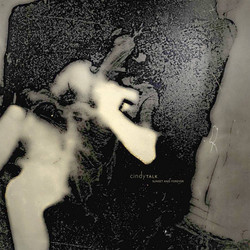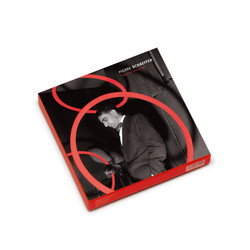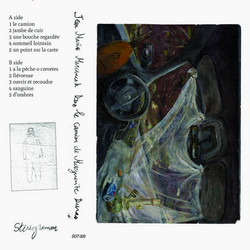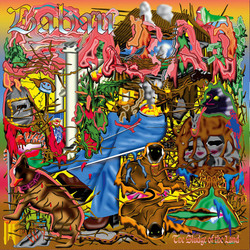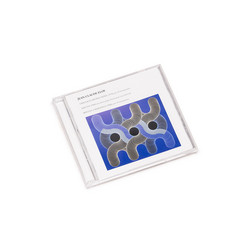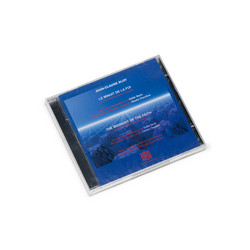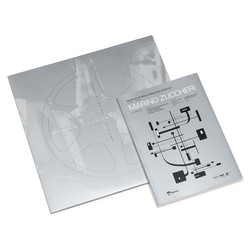In process of stocking **Edition of 100** Recorded and assembled 2015-2020 by William Selman and mastered by Stephan Mathieu. Inspired by Roland Kayn and the Gruppo d'Improvvisazione Nuova Consonanza, Quaderno Rosso investigates the dialectical relationship between cybernetics and free improvisation using an “action-reaction system of listening” (per Franco Evangelisti) to shape the entangled networks and redirect signal and information flow towards new ends.
Quaderno Rosso is a cybernetic work exploring action and reaction in a network. It is at once a critique of the network as imagined by neoliberal technocrats, state security services, and the tech industry, and an attempt to imagine a socialized network driven not by capital but by humans. It picks up from the worker networks of operaisti in 1970s industrial Italy, from Allende’s cybernetic managed economy, and from the musical cybernetics of Roland Kayn - picturing how we can turn the network against itself, subvert it, and socialize it. Cybernetic systems are constructed through analog feedback loops both electrical and manual (human regulated), settling into steady-states and self-regulating patterns while being simultaneously pushed and pulled by human action.
Every further link between the various parts of capital is a further channel of communication between the diverse constituents of the working class. - Mario Tronti, Workers and Capital
When human atoms are knit into an organization in which they are used, not in their full right as responsible human beings, but as cogs and levers and rods, it matters little that their raw material is flesh and blood. What is used as an element in a machine, is in fact an element in the machine. - Norbert Wiener, The Human Use of Human Beings The factory that governs daily life in the 21st century is a network. It does not manufacture physical commodities - it manufactures data. The network, glorified as the great leveller of neoliberalism, instead preserves and exacerbates existing class dynamics, reflecting the class interests of those who control it. Masquerading as a liberator and equalizer, the network extracts a lot more information from you than you get from it, and information flows from the bottom to the top. Its penetration into daily life grows and multiplies, increasingly governing your daily reality. The network doesn’t just choose what music to suggest to you or what information you see in Google searches - it also uses your data to determine the real estate value of a city block for condo development. It mines data about your health to raise insurance rates, and uses microphones, GPS, and cameras to deploy police. It creates and shapes your material reality both on- and off-line in the interest of the capitalist class - the owners of the network.
This network is not self-organizing - it has been organized by the capitalist class. It is organized not to enrich life and raise the social and material wealth of all, but to make the masses more efficient, and to generate more profits for the owners. The living, by migrating their everyday life onto the network, are reduced to input nodes which produce a commodity that immediately becomes capitalist property. Every social interaction, every online conversation, mediated between avatars owned by the bourgeoisie, is commodified for bourgeois profit. Humans are no longer bound by




